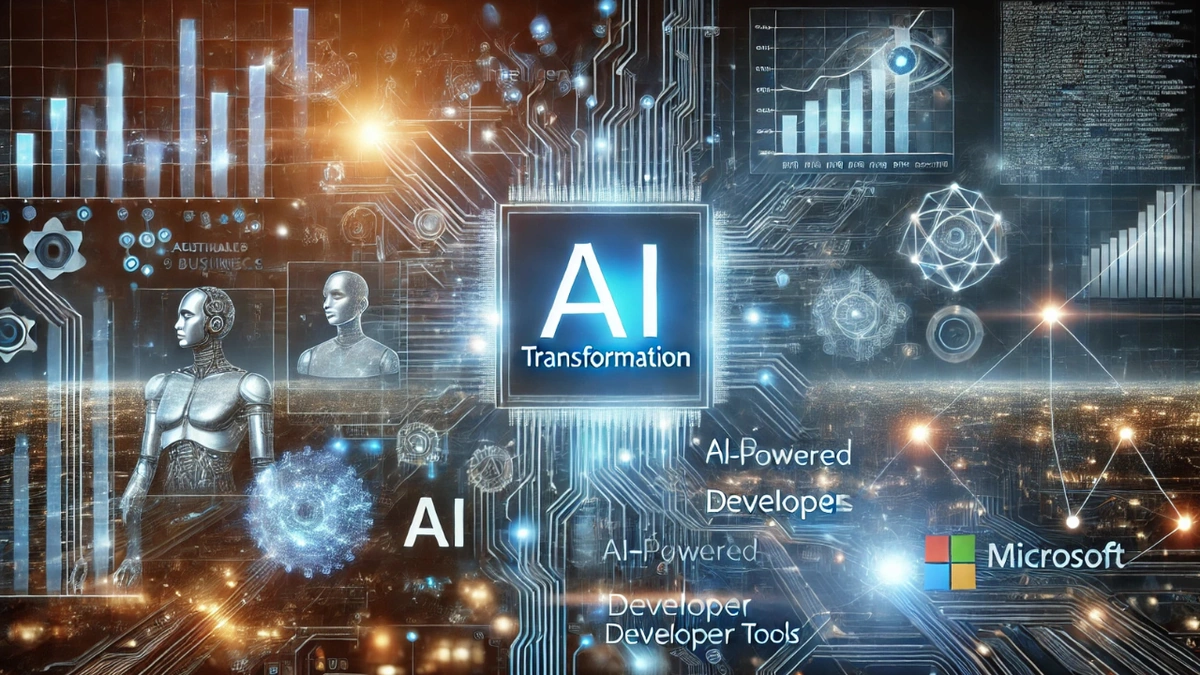TCS’s $6B AI Revamp | A New Strategy for Indian IT
Six billion dollars. Let that number sink in. That’s the figure TCS is throwing at its AI overhaul, and it’s not just pocket change. We’re talking about a tectonic shift, not just for TCS, but potentially for the entire Indian IT landscape. But here’s the thing: why now? What’s driving this massive investment, and what does it really mean for the average techie and the future of Indian IT? Let’s dive in, shall we?
The “Why” | More Than Just Jumping on the AI Bandwagon

It would be easy to dismiss TCS’s move as simply following the hype around artificial intelligence . But that’s far too simplistic. The real ‘why’ goes much deeper, tied to the evolving demands of global clients and the urgent need to stay competitive in an increasingly cutthroat market. Global businesses aren’t just asking for IT services; they’re demanding AI-powered solutions that can streamline operations, personalize customer experiences, and drive unprecedented levels of efficiency. Consider also the emergence of advanced technologies and the need to stay ahead of the curve. This is where the strategy of implementing AI in Indian IT comes into play. TCS isn’t just upgrading its tech; it’s fundamentally transforming its core capabilities to meet these new demands. This level of investment signals a long-term commitment, a strategic bet that AI will be the defining force in the next era of IT services.
Decoding the $6 Billion | Where’s the Money Going?
So, where’s all that cash actually headed? While TCS hasn’t released a detailed breakdown, we can infer some key areas of focus. First, expect a significant portion to be invested in talent acquisition and training. You can’t build an AI powerhouse without skilled engineers, data scientists, and AI specialists. The company will need to both recruit top talent and upskill its existing workforce to handle the complexities of AI development and deployment. Another major area is likely to be infrastructure. AI models require massive computing power and data storage, so TCS will need to upgrade its hardware and cloud capabilities significantly. And let’s not forget research and development. TCS will need to innovate its own AI solutions and adapt existing technologies to meet the specific needs of its clients. This investment is not just about buying existing AI tools; it’s about building a truly intelligent ecosystem. But, TCS also has to be aware of ethical considerations during AI implementation .
The Ripple Effect | How This Impacts Indian IT Professionals
This is where it gets personal for many. What does this AI overhaul mean for the average Indian IT professional? Well, it’s a mixed bag. On one hand, it creates exciting new opportunities. Those with AI skills or the willingness to learn will be in high demand. We’re talking about potentially lucrative career paths in areas like machine learning, natural language processing, and computer vision. On the other hand, there’s a very real risk of displacement. Routine tasks that can be automated by AI will likely be phased out, potentially impacting those in more traditional roles. The key takeaway? Adaptability is paramount. Continuous learning and upskilling will be essential for survival in the new AI-driven landscape. Let’s be honest; the future belongs to those who embrace change. To help with this, it’s worthwhile looking into available AI skills training .
Beyond TCS | A Catalyst for Change in the IT sector
TCS’s massive investment is likely to have a cascading effect across the entire Indian IT sector. Other major players will be forced to respond, either by ramping up their own AI investments or by focusing on niche areas where they can differentiate themselves. This competition will ultimately benefit Indian businesses by creating a more dynamic and innovative IT ecosystem. What fascinates me is how this could reshape the global perception of Indian IT. No longer just seen as a provider of cost-effective outsourcing, India could emerge as a leader in AI-powered solutions. It’s a bold vision, but one that’s within reach. The strategy of AI adoption in IT is a key driver for this transformation.
And, while all of this is unfolding, it’s helpful to check out these market updates . You may find it interesting to read a comparison on different approaches to AI .
Navigating the Future | Challenges and Opportunities
Of course, this transformation won’t be without its challenges. One major hurdle is the availability of talent. India has a vast pool of IT professionals, but the number with deep AI expertise is still relatively small. Bridging this skills gap will require a concerted effort from both companies and educational institutions. Another challenge is the need for robust data privacy and security frameworks. As AI becomes more prevalent, it’s crucial to ensure that data is used responsibly and ethically. What I initially thought was a straightforward move into AI, is actually a multifaceted challenge, which could determine the success of Indian IT. It’s not just about technology; it’s about people, ethics, and a long-term vision for the future. According to Wikipedia , talent acquisition, is key for an AI infrastructure to thrive.
FAQ
Frequently Asked Questions
What exactly does “AI Overhaul” mean in this context?
It refers to a comprehensive upgrade and integration of Artificial Intelligence technologies across TCS’s services, operations, and internal processes.
How will TCS’s AI investment affect smaller IT companies in India?
Smaller companies may need to specialize in niche areas or partner with larger firms to remain competitive.
What skills should IT professionals focus on to stay relevant in the AI era?
Key skills include machine learning, data science, cloud computing, and AI ethics.
Is TCS planning to use AI to automate jobs currently done by humans?
Yes, automation is a key driver, but TCS will also create new roles requiring AI expertise.
Where can I find more information about TCS’s AI strategy?
Check TCS’s official website and investor relations materials for updates.
What are the broader implications of this investment on the Indian economy?
This could lead to increased innovation, higher-paying jobs, and a stronger global presence for Indian IT.
So, TCS’s $6 billion bet on AI isn’t just about technology; it’s a strategic gamble on the future of Indian IT. Whether it pays off remains to be seen, but one thing is certain: the AI revolution is here, and it’s reshaping the industry in profound ways.













